Connecting early-career researchers with creatives for climate knowledge brokering in Ghana
Connecting early-career researchers with creatives for climate knowledge brokering in Ghana
As climate change continues to pose unprecedented challenges across different sectors in Africa, the role of evidence-based research has never been more critical, as it provides the basis to diagnose and contextualise these challenges and design appropriate place-based solutions. However, there is limited capacity among researchers in Africa to connect evidence-based research to place-based solutions that can address Africa’s unique challenges, especially for researchers who are aspiring or starting their professional research journeys.
One of the most critical capacity limitations for early career researchers is the lack of knowledge brokering skills to produce and translate research findings into accessible outputs that can drive change. Knowledge brokering connects research to action by linking knowledge producers and users. It enables co-creation of solutions with diverse stakeholders (including creatives) that are tailored to local contexts, ensuring evidence-based climate action.
Recognising these gaps, the CDKN Ghana programme funded 25 early career researchers including post-doctotal research fellows and research students in PhD and masters training, to participate in the research connect training (RCT) workshop. This event shared knowledge brokering tools to enhance the capacity of early career researchers. As part of the RCT workshop, eight non-researchers from diverse creative backgrounds (including songwriting, painting, digital illustration, media, cinematography, podcasting and photography) were invited to explore creative opportunities for science communication. The inclusion of creatives was to facilitate the co-creation process in the knowledge brokering journey.
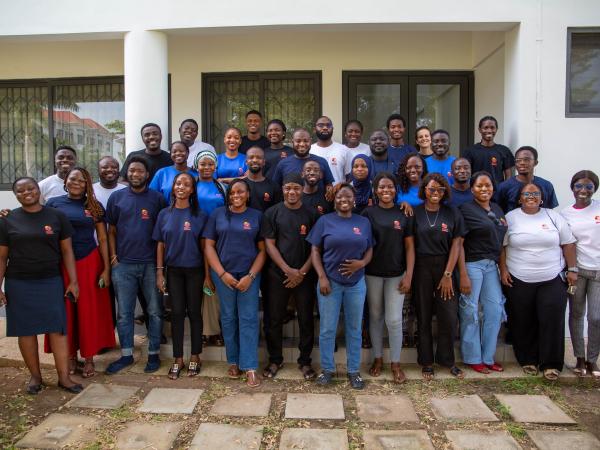
A dynamic knowledge brokering learning experience
The interactive sessions guided researchers through a knowledge brokering journey where researchers learned how to facilitate the creation, dissemination and eventual use of knowledge for effective climate action. The knowledge brokering journey shared an understanding of concepts, contexts, co-creation processes, translation and communication, bridging the knowledge gaps and reflections and learning.
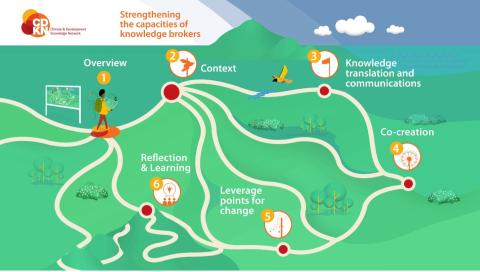
Additionally, the researchers learned the principles and practices of knowledge brokering, exploring tools and strategies to facilitate collaboration and information sharing. This included co-creation approaches, emphasising the importance of working alongside communities to co-create solutions. The knowledge translation and communication phase of the knowledge brokering process focused on translating complex research findings into non-technical formats to improve accessibility. Participants learned about the role of knowledge brokers as strategic facilitators who manage information flows, synthesize knowledge to enhance clarity and relevance, and collaborate with diverse knowledge holders to drive systemic change. Researchers as knowledge brokers can position themselves along the spectrum of infomediaries, knowledge translators, knowledge co-creators and innovation brokers.
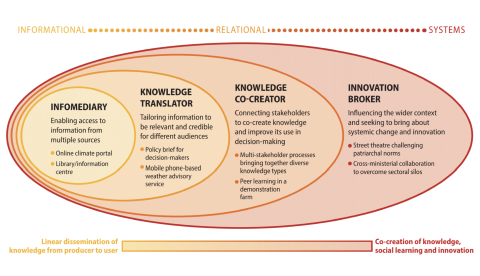
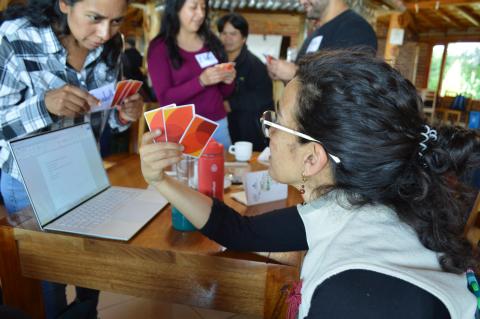
Knowledge translation and communication
One of the most impactful aspects of the knowledge brokering process was its unique collaboration between early career researchers and creatives from various artistic backgrounds. This collaborative approach aimed to democratise academic outputs by breaking down their complexities into simplified formats that are more widely accessible and user-friendly. This process involved practical exercises where participants used various artistic and media tools, including storytelling, visual art and multimedia, to effectively communicate their research.
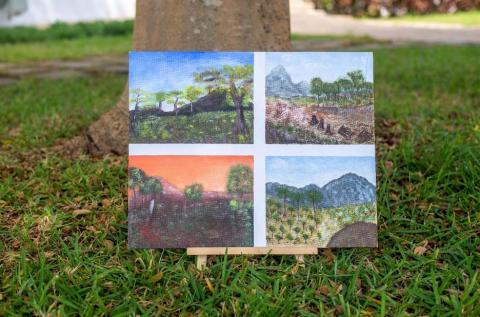
Transformative Outcomes
The impact of the RCT was evident in the feedback from participants. Over 90% of the participants indicated the sessions deepened their understanding of knowledge brokering and enhanced their skills in translating complex research into creative outputs. Some participants shared their experiences on social media, highlighting their newfound confidence in engaging with diverse stakeholders, crafting compelling narratives, and translating scientific findings into non-technical formats. Many emphasised that the interactive training sessions strengthened their collaborative engagements with creatives to co-produce outputs that go beyond academic silos.
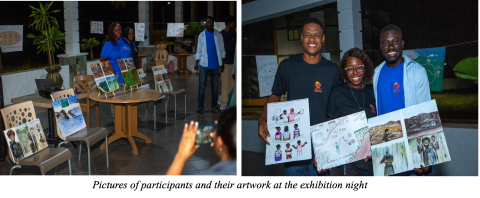
Looking Ahead
Moving forward, participants are encouraged to continue using the knowledge gained for impact. Participants were encouraged to:
-
Leverage the skills and tools from the training to develop creative outputs for their research findings tailored todiverse audiences.
-
Create platforms for participants to connect with stakeholders, policymakers, and practitioners to showcase their work.
-
Engage with stakeholders, policymakers, and communities to ensure outputs are relevant, actionable, and impactful.
-
Maintain the network formed during the program to exchange ideas, provide feedback, and build on collective strengths.
-
Leveraging social media to maximise reach and impact.
